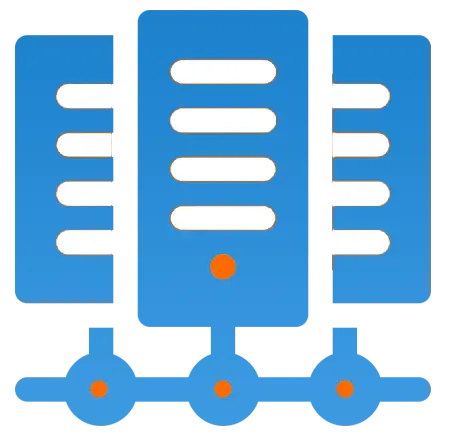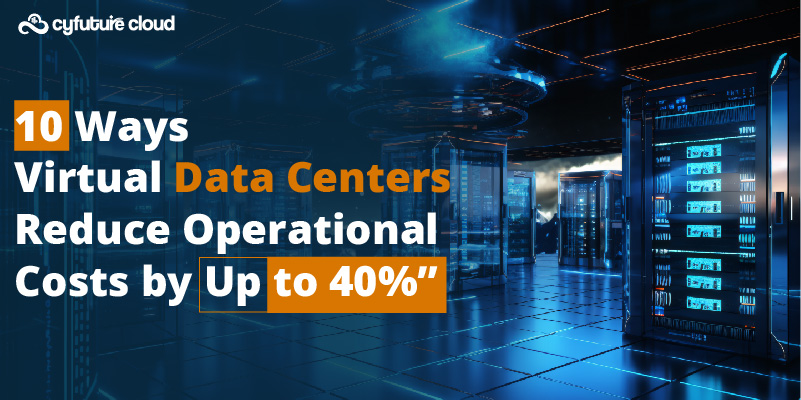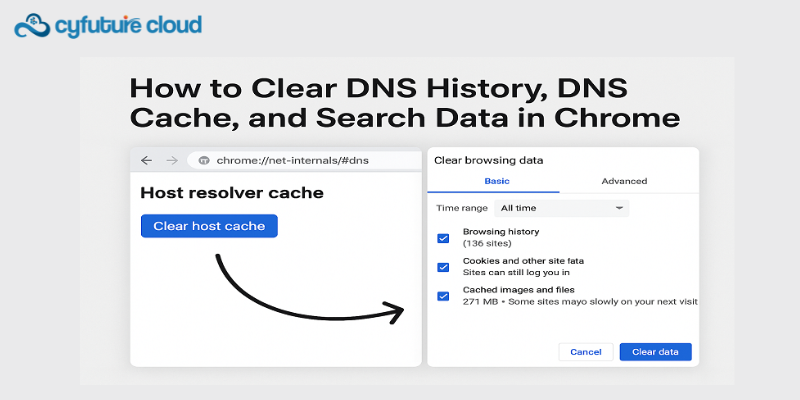Get 69% Off on Cloud Hosting : Claim Your Offer Now!
- Products
-
Compute
Compute
- Predefined TemplatesChoose from a library of predefined templates to deploy virtual machines!
- Custom TemplatesUse Cyfuture Cloud custom templates to create new VMs in a cloud computing environment
- Spot Machines/ Machines on Flex ModelAffordable compute instances suitable for batch jobs and fault-tolerant workloads.
- Shielded ComputingProtect enterprise workloads from threats like remote attacks, privilege escalation, and malicious insiders with Shielded Computing
- GPU CloudGet access to graphics processing units (GPUs) through a Cyfuture cloud infrastructure
- vAppsHost applications and services, or create a test or development environment with Cyfuture Cloud vApps, powered by VMware
- Serverless ComputingNo need to worry about provisioning or managing servers, switch to Serverless Computing with Cyfuture Cloud
- HPCHigh-Performance Computing
- BaremetalBare metal refers to a type of cloud computing service that provides access to dedicated physical servers, rather than virtualized servers.
-
Storage
Storage
- Standard StorageGet access to low-latency access to data and a high level of reliability with Cyfuture Cloud standard storage service
- Nearline StorageStore data at a lower cost without compromising on the level of availability with Nearline
- Coldline StorageStore infrequently used data at low cost with Cyfuture Cloud coldline storage
- Archival StorageStore data in a long-term, durable manner with Cyfuture Cloud archival storage service
-
Database
Database
- MS SQLStore and manage a wide range of applications with Cyfuture Cloud MS SQL
- MariaDBStore and manage data with the cloud with enhanced speed and reliability
- MongoDBNow, store and manage large amounts of data in the cloud with Cyfuture Cloud MongoDB
- Redis CacheStore and retrieve large amounts of data quickly with Cyfuture Cloud Redis Cache
-
Automation
Automation
-
Containers
Containers
- KubernetesNow deploy and manage your applications more efficiently and effectively with the Cyfuture Cloud Kubernetes service
- MicroservicesDesign a cloud application that is multilingual, easily scalable, easy to maintain and deploy, highly available, and minimizes failures using Cyfuture Cloud microservices
-
Operations
Operations
- Real-time Monitoring & Logging ServicesMonitor & track the performance of your applications with real-time monitoring & logging services offered by Cyfuture Cloud
- Infra-maintenance & OptimizationEnsure that your organization is functioning properly with Cyfuture Cloud
- Application Performance ServiceOptimize the performance of your applications over cloud with us
- Database Performance ServiceOptimize the performance of databases over the cloud with us
- Security Managed ServiceProtect your systems and data from security threats with us!
- Back-up As a ServiceStore and manage backups of data in the cloud with Cyfuture Cloud Backup as a Service
- Data Back-up & RestoreStore and manage backups of your data in the cloud with us
- Remote Back-upStore and manage backups in the cloud with remote backup service with Cyfuture Cloud
- Disaster RecoveryStore copies of your data and applications in the cloud and use them to recover in the event of a disaster with the disaster recovery service offered by us
-
Networking
Networking
- Load BalancerEnsure that applications deployed across cloud environments are available, secure, and responsive with an easy, modern approach to load balancing
- Virtual Data CenterNo need to build and maintain a physical data center. It’s time for the virtual data center
- Private LinkPrivate Link is a service offered by Cyfuture Cloud that enables businesses to securely connect their on-premises network to Cyfuture Cloud's network over a private network connection
- Private CircuitGain a high level of security and privacy with private circuits
- VPN GatewaySecurely connect your on-premises network to our network over the internet with VPN Gateway
- CDNGet high availability and performance by distributing the service spatially relative to end users with CDN
-
Media
-
Analytics
Analytics
-
Security
Security
-
Network Firewall
- DNATTranslate destination IP address when connecting from public IP address to a private IP address with DNAT
- SNATWith SNAT, allow traffic from a private network to go to the internet
- WAFProtect your applications from any malicious activity with Cyfuture Cloud WAF service
- DDoSSave your organization from DoSS attacks with Cyfuture Cloud
- IPS/ IDSMonitor and prevent your cloud-based network & infrastructure with IPS/ IDS service by Cyfuture Cloud
- Anti-Virus & Anti-MalwareProtect your cloud-based network & infrastructure with antivirus and antimalware services by Cyfuture Cloud
- Threat EmulationTest the effectiveness of cloud security system with Cyfuture Cloud threat emulation service
- SIEM & SOARMonitor and respond to security threats with SIEM & SOAR services offered by Cyfuture Cloud
- Multi-Factor AuthenticationNow provide an additional layer of security to prevent unauthorized users from accessing your cloud account, even when the password has been stolen!
- SSLSecure data transmission over web browsers with SSL service offered by Cyfuture Cloud
- Threat Detection/ Zero DayThreat detection and zero-day protection are security features that are offered by Cyfuture Cloud as a part of its security offerings
- Vulnerability AssesmentIdentify and analyze vulnerabilities and weaknesses with the Vulnerability Assessment service offered by Cyfuture Cloud
- Penetration TestingIdentify and analyze vulnerabilities and weaknesses with the Penetration Testing service offered by Cyfuture Cloud
- Cloud Key ManagementSecure storage, management, and use of cryptographic keys within a cloud environment with Cloud Key Management
- Cloud Security Posture Management serviceWith Cyfuture Cloud, you get continuous cloud security improvements and adaptations to reduce the chances of successful attacks
- Managed HSMProtect sensitive data and meet regulatory requirements for secure data storage and processing.
- Zero TrustEnsure complete security of network connections and devices over the cloud with Zero Trust Service
- IdentityManage and control access to their network resources and applications for your business with Identity service by Cyfuture Cloud
-
-
Compute
- Solutions
-
Solutions
Solutions
-
 Cloud
Hosting
Cloud
Hosting
-
 VPS
Hosting
VPS
Hosting
-
GPU Cloud
-
 Dedicated
Server
Dedicated
Server
-
 Server
Colocation
Server
Colocation
-
 Backup as a Service
Backup as a Service
-
 CDN
Network
CDN
Network
-
 Window
Cloud Hosting
Window
Cloud Hosting
-
 Linux
Cloud Hosting
Linux
Cloud Hosting
-
Managed Cloud Service
-
Storage as a Service
-
 VMware
Public Cloud
VMware
Public Cloud
-
 Multi-Cloud
Hosting
Multi-Cloud
Hosting
-
 Cloud
Server Hosting
Cloud
Server Hosting
-
 Bare
Metal Server
Bare
Metal Server
-
 Virtual
Machine
Virtual
Machine
-
 Magento
Hosting
Magento
Hosting
-
Remote Backup
-
 DevOps
DevOps
-
 Kubernetes
Kubernetes
-
 Cloud
Storage
Cloud
Storage
-
NVMe Hosting
-
 DR
as s Service
DR
as s Service
-
-
Solutions
- Marketplace
- Pricing
- Resources
- Resources
-
By Product
Use Cases
-
By Industry
- Company
-
Company
Company
-
Company
Cloud Data Factory and Big Data: How It Can Help Organizations Manage and Analyze Large Data Sets
Table of Contents
Introduction
Cloud data factory can process large volumes of data quickly and efficiently, making it possible to analyze massive data sets in near real-time. This can include running complex queries, performing machine learning tasks, and more.
Data Visualization
Cloud data factory can integrate with data visualization tools to create interactive visualizations that help organizations understand their data and gain valuable insights.
Predictive Analytics
Cloud data factory can be used for predictive analytics, allowing organizations to identify trends and patterns in their data and make informed decisions based on that information.
Real-Time Analytics
Cloud data factory can be used for real-time analytics, allowing organizations to make decisions in real-time based on the data they are collecting.
A real-world action of Cloud Data Factory
To illustrate the power of a cloud data factory in managing and analyzing big data, let’s look at a real-world example.
A large retailer wants to understand its customers better to improve its marketing campaigns and increase sales. The retailer collects data from various sources, including its website, mobile app, social media, and in-store purchases.
The retailer uses a cloud data factory to ingest and transform this data, integrating it into a single data store that big data tools can analyze. The data is cleaned and enriched as it is integrated, ensuring it is high quality and useful for analysis.
The retailer uses big data analytics tools like Hadoop and Spark to analyse the data and gain insights into customer behaviour. They can identify trends and patterns in customer purchasing behaviour, such as which products are most popular and when customers are most likely to purchase.
Using these insights, the retailer can create targeted marketing campaigns that are more likely to resonate with its customers. They are able to increase sales and improve customer satisfaction as a result.
Conclusion
The adoption of advanced technologies is rising by enterprises, and the various cloud data platforms are gaining prominence across diverse verticals and industries. These advanced cloud technologies and platforms allow modern enterprises to leverage big data to the fullest.
With the help of various tools, technologies, and novel approaches to data analytics, enterprise big data workflows transform into purpose-driven business value and insight.
At Cyfuture cloud, we assist enterprises of all sizes in scaling and optimizing their cloud data. In the world of big data with our data integration services.
However, with the rise of big data, managing and analyzing this information has become more challenging than ever. This is where our cloud data factory solution provides data integration service.
This blog will explore how our cloud data factory can help organizations manage and analyze large data sets.
What is Big Data?
Before diving into the specifics of cloud data factory, let’s first define big data.
Big Data refers to the collection of data that is huge in volume that organizations collect and analyze to gain insights and make informed decisions, yet growing exponentially with time. It is data that only some of the traditional data management tools can store or process efficiently. Big data is also data but with a considerable size.
Big data can come from various sources, including customer transactions, social media, machine-generated data, etc.
Mainly, Big data is characterized by the 3Vs – volume, velocity, and variety.
- Volume refers to the sheer amount of data that organizations are collecting.
- Velocity refers to the speed at which data is generated and processed.
- Variety refers to the various types of data organizations collect, including structured, semi-structured, and unstructured data.
The Challenges of Managing and Analyzing Big Data and How Cloud Data Factory Can Help
Managing and analyzing big data is a complex task that presents several challenges for organizations. Some of the key challenges include:
Data Integration
One of the significant challenges in managing and analyzing big data is that data comes from various sources, such as social media pages, ERP applications, customer logs, financial reports, e-mails, presentations, and reports created by employees in various formats. Integrating all the data into a single data store can be daunting.
Solution
To solve data integration problems, companies need to buy proper data integration tools. A few simple tools are mentioned below:
- Talend Data Integration
- Centerprise Data Integrator
- ArcESB
- IBM InfoSphere
- Xplenty
- Informatica PowerCenter
- CloverDX
- Microsoft SQL QlikView
Data Security
With so much sensitive information being collected and stored, ensuring the security of these vast sets of knowledge is one of the critical challenges. Most companies are so busy understanding, storing, and analyzing their data sets that they push data security for later stages. Because of this, they left data repositories unprotected for malicious hackers. As a result, companies can lose up to $3.7 million for stolen records or knowledge breaches.
Solution
Companies need to recruit more cybersecurity professionals to guard their data to resolve this challenge. To secure their data, companies include data encryption, data segregation, Identity, and access control, Implementation of endpoint security, and Real-time security monitoring.
Data Quality
Many companies need better data quality of big data. The big data set can contain duplicates, errors, and inconsistencies, making it difficult to ensure data quality.
Solution
To overcome this challenge, a cloud data factory can help organizations ensure data quality by cleaning, transforming, and enriching data as it is being integrated. Companies need to correct information in the original database; repairing the original data source is necessary to resolve any data inaccuracies, and you must use highly accurate methods of determining who someone is.
Lack of proper understanding of Massive Data
During initiatives of Big data, companies usually need more understanding. Employees might need to learn what data is, its storage, processing, importance, and sources.
Data professionals may know what’s happening, but others might need a more transparent picture. For example, employees must understand the importance of knowledge storage to keep a backup of sensitive data. They could not use databases properly for storage. As a result, when this critical data is required, it can’t be retrieved easily.
Solution
All levels of the organization must teach a basic understanding of knowledge concepts. Its workshops and seminars must be held at companies for everybody. Military training programs must be arranged for all the workers handling data regularly and are a neighborhood of large Data projects.
Using Cloud Data Factory for Big Data Analytics
In addition to helping organizations manage their big data sets, cloud data factory can also be used to analyze that data. Organizations can gain valuable insights from their data by integrating cloud data factory with big data analytics tools like Hadoop, Spark, and Hive.
Here are some of the ways cloud data factory can be used for big data analytics:
Data Ingestion
Cloud data factory can ingest data from various sources and transform it into a format that big data tools can analyze. This can include structured, semi-structured, and unstructured data.
Data Transformation
Cloud data factory can transform and enrich data as it is being ingested, making it more useful for analysis. This can include cleaning, aggregating, and enriching data with additional information.
Data Processing
Thus, managing and analyzing big data is a complicated task, but a cloud data factory can make it much more manageable by offering scalable, flexible, and cost-effective data integration and analytics solutions.
Cloud data factory can help organizations gain valuable insights from their data and make informed decisions based on that information. Whether a small startup or a large enterprise, a cloud data factory can help you quickly manage and analyze your big data sets.
Recent Post

Stay Ahead of the Curve.
Join the Cloud Movement, today!
© Cyfuture, All rights reserved.
Send this to a friend

 Pricing
Calculator
Pricing
Calculator
 Power
Power
 Utilities
Utilities VMware
Private Cloud
VMware
Private Cloud VMware
on AWS
VMware
on AWS VMware
on Azure
VMware
on Azure Service
Level Agreement
Service
Level Agreement 


















